Bosnian director Danis Tanovic gets back to his roots with his fourth feature Cirkus Columbia, which is screening in Venice Days.
Danis Tanovic made his breakthrough in 2001 with No Man’s Land, which won over 40 awards including the Foreign Language Oscar and turned the director into Bosnia’s favourite son and “enfant terrible” at the same time.
Now, at 41, with two more international productions under his belt, L’enfer (2005) and Triage (2009), Tanovic has returned to his roots with his latest project Cirkus Columbia, which is set in Bosnia & Herzegovina in 1991 before the conflicts began.
The film, which opened this year’s Sarajevo film festival, is heading for Venice Days, then Toronto, to be followed by San Sebastian. Meanwhile, Tanovic, who recently moved back to Bosnia after living in Paris, has also turned his hand to politics and started his own party.
It is the third time you adapt someone else’s story to your own cinematic language and the first project at home after a long absence, why and how did you make that choices?
You never know whether a project will materialize or not. After No Man’s Land I had a project ready to shoot but it did not work out. Instead came L’enfer based on a script Kieslowski was supposed to direct before his sudden death. Triage took a very long time, the company of Anthony Minghella and Sydney Pollack approached me in 2002 but it was finally shot only in 2008 and released in 2009.
Ivica Djikic’s novel which we adapted for Cirkus Columbia is famous around here and has won many awards. I loved it but inevitably, I had to change quite a few elements in it, after all the book is 90 pages long and covers 12 years while the script has 120 pages and talks about three weeks only. So the film is completely different.
What drew you to this story?
I like the idea of this guy who returns home after 15 years in the West, his pockets full of money but his black cat is his dearest possession. Actually what really interested me is that particular period before the war, a time we rarely talk about and which fascinates me more than the war itself. It’s the last naïve moment in my life, when everyone around me was still engaged with ideological issues and human rights. I would like to believe we can go back to it now, talking, discussing, arguing, if you like but there is no reason for any of us to start another war and I don’t think there is a chance for such a war to erupt again.
How does your film address this issue?
For people coming from outside it may be hard to understand. For our people it’s like a ray of hope, if we could be like this once we can do it again. When you are crushed for so many years by wars, hardships and crooked politicians, you tend to forget what life can really be like. I knew how old people like my parents and grandparents would react but it was great to see all these young people who did understand it as well. You can discuss taste, camera movements, lighting a scene but at the end of the day it’s what you feel, what the film leaves you with.
This is why I was so happy: it was the first time I had a premiere at home [Sarajevo] with the members of the crew who saw the film for the first time, and never knew what to expect. They were afraid, worried and anxious, but they can’t lie and I could see how happy they were. And I could see that the idea I wanted to communicate had an impact. I never received so many messages on my phone, not even for No Man’s Land.When I read some of the critics, I realised it might be hard for them to perceive what for me is self evident. We have elections in less than two months and I desperately want the left to win and cut out all this fascist nationalism bullshit spread around us, once and for all.
Is this the reason you turned to politics now?
Yes. Because I can’t take it anymore, we even gave a name for what’s going on here, Ethnokleptomania which is stealing in the name of your own people, because corruption is everywhere and it brought people down to their knees. So we thought it’s our duty to change it, I have no other political aspirations whatsoever. I am just a film-maker who wants his country to move to a better future. The politicians in power here have created an atmosphere of fear, everything here depends on politics, nothing else, they built this twisted system and if you raise your voice you pay for it dearly. I am in a different position because I am making my films abroad, outside their reach.
So what made you come back after ten years in Paris?
To be honest, my mum. A few years ago she had a tumor and my wife encouraged me to come and spend more time with her. And indeed she is much better now.
How does it compare working in other places in Europe to working in Bosnia?
I was always an outsider and even here, in Bosnia I feel like one, I don’t know why. So it’s as difficult or as easy for me to work here as it is Europe. The fact is, of course, that it is hard to anyone to make films nowadays unless it is horror, action or multi-million dollars special-effects blockbusters. I never see the limitations I always see solutions…I was born in Yugoslavia I was trained to find solutions. So for me problems are a normal part of making films, I think this is what is pushing me to be more creative and more inventive. And my greatest pleasure was to shoot at home. We shot it all here in the south of Herzegovina, our own little Provence, and three days in Slovenia.
You have a longtime relationship with producer Cedomir Kolar, how does it work?
Cedomir and I are discussing a lot. Whenever I demand something that looks problematic he asks me if I really need it, if I insist he will always find a solution to meet me. I put my trust in him and thanks to him I can go on working, and luckily, people seem to like my films. Coming from this small country, Bosnia, surviving wars and with this troubled history of ours and then finding myself sitting at one table in Cannes with the Coen Brothers and David Lynch — a filmmaker I always adored — I can only say I am blessed.




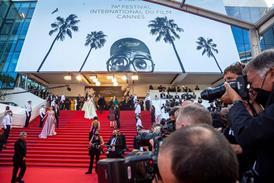
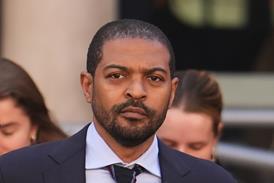
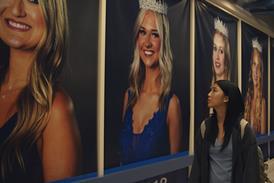
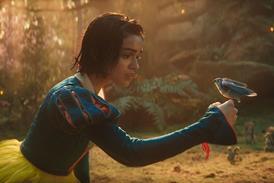




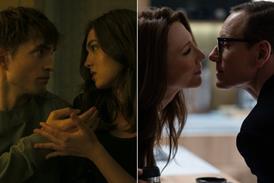









No comments yet